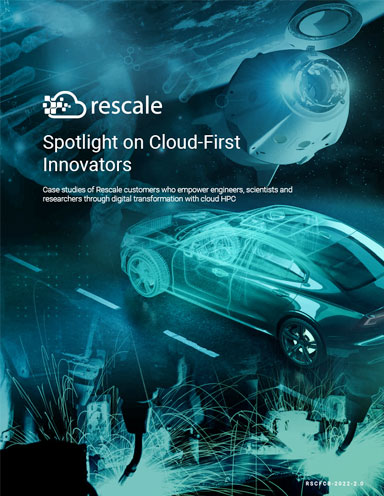HP Announces Engineering Cloud Transformation Services
Converged Cloud designed to deliver choice and consistency for hybrid environments.
Latest News
December 4, 2001
By Jamie J. Gooch
HP has announced HP Converged Cloud, which it says is the industry’s first strategy and portfolio based on a single architecture that enables enterprises to build, manage and secure hybrid environments.
Cloud services abound, but HP says Converged Cloud differs from other market offerings because it is based on a common architecture spanning private, managed and public cloud as well as traditional IT. The company says both the strategy and portfolio are built around a set of customer centric principles:
1. Choice through an open, standards-based approach supporting multiple hypervisors, operating systems, development environments, heterogeneous infrastructure and an extensible partner ecosystem.
2. Confidence through a management and security offering that spans information, applications and infrastructure.
HP Converged Cloud is built on HP Converged Infrastructure, HP Converged Management and Security software, HP Converged Information and hardened open source technology from OpenStack.
Engineers Are a Focus
Part of the announcement includes new Engineering Cloud Transformation Services that are designed to help product development and engineering design teams embrace the cloud to improve productivity and rapidly bring new products to market. In addition, the company says new Cloud Security Alliance training courses arm clients with the knowledge to avoid potential security implications of cloud solutions.
“Our customers have told us they’re not using their cloud centers effectively,” says Ali Shadman, vice president and chief technologist, HP Technology Consulting. “It takes a long time to setup workstations, and it’s difficult to bring someone up globally. They’re not really using expensive licenses effectively. They buy a license for everyone, but not everyone is using the software at the same time.”
Shadman says HP’s IT group had built the basis for better integrating cloud services for the company’s own manufacturing and engineering teams. He says the company spent time understanding how engineers work with 3D modeling, and the impact of delivering that via a datacenter vs. a local workstation.
“We have a huge engineering group at HP that has already done it,” Shadman says. “The best example of it working is that we’ve done it for ourselves. We are using it.”
To tackle the problem of moving large files back and forth to a cloud solution, Shadman says HP’s vision is to deliver the same experience for engineers via a data center that they’re used to getting from their workstations.
“All the files live in the data center, the work is being done at the datacenter,” he says. “Workloads are being housed in central datacenter. There is no file movement.”
Shadman also says HP is working with engineering software vendors to develop licensing solutions, which has been another hurdle toward cloud implementation.
The company’s Engineering Cloud Transformation Services could help large engineering departments get a handle on their cloud investments. Research commissioned by HP shows organizations are undergoing major shifts in how services are delivered and highlights how cloud offerings are increasingly being sourced without the IT department approvals. The survey indicated that almost one in every two enterprises had departments running non-IT sanctioned cloud solutions and 18% indicated they were unsure whether any departments were running non-IT sanctioned cloud solutions.
Public Beta Begins Now
Available as a public beta starting today, HP Cloud Services will deliver its initial offering, HP public Infrastructure-as-a-Service, providing on-demand compute instances or virtual machines, scalable online storage capacity, and accelerated delivery of cached content to end users. As a result, developers are able to deploy services within minutes and only pay for the resources they use.
A relational database service for MySQL and a block storage service are in private beta, which supports movement of data from one compute instance to another.
HP’s new Cloud Maps extend HP CloudSystem—which the company calls an integrated, open solution for building clouds—by providing prepackaged templates that create a catalog of application services ready for push-button deployment. The time to create new cloud services for enterprise applications can drop from months to minutes, according to HP.
To help test these applications, HP also announced HP Service Virtualization 2.0. This software enables clients to test the quality and performance of cloud or mobile applications without disrupting production systems.

HP Service Virtualization allows users to edit performance characteristics of
virtual services to perform load tests under a variety of conditions.
To address the bottlenecks enterprises often experience when developing new cloud services on complex, legacy networks, HP is introducing Virtual Application Networks. The solution is designed to speed application deployment, automate management and ensure network service levels (SLAs) in delivering cloud and virtualized applications across the FlexNetwork architecture.
Addressing Cloud Security and Management
HP also announced two new networking services. HP Virtual Network Protection Service is said to leverage best practices to set the baseline for security at the network virtualization management layer to help mitigate common threats. Network Cloud Optimization Service is designed to help clients enhance their network to improve cloud-based service delivery up to 93% compared to traditional download techniques, according to the company.
For clients who do not wish to manage their own clouds, HP also announced new Enterprise Cloud Services that provide offerings for private clouds, continuity services and unified communications. By outsourcing cloud management, HP says clients can leverage on-demand usage and pricing models to re-direct cost savings to other strategic projects.
In related news, Autonomy, an HP company, announced that its private cloud has passed a new data processing milestone, extending its lead as the largest private cloud. The Autonomy private cloud, powered by the Autonomy Intelligent Data Operating Layer (IDOL), now manages more than 50 petabytes of web content, video, email and multimedia data on 6,500 servers in 14 data centers.
More information about the company’s new cloud solutions and services, visit HP and the company’s Engineering Cloud Transformation Services page.
Sources: Interview with company representatives and press materials received from the company.
Subscribe to our FREE magazine, FREE email newsletters or both!
Latest News
About the Author
Jamie Gooch is the former editorial director of Digital Engineering.
Follow DE





